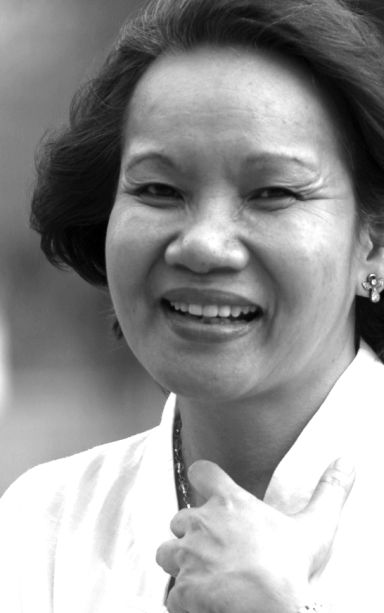
LOGARTA
The LAW Center. Inc. program, Sa Mata sa Kababayen-an recently featured Des Balota and Malou Alorro of Women in the Literary Arts (WILA).
Aiming to contribute to the flourishing of Cebuano culture, it gathers female writers and engage in poetry readings, book launchings, writing workshops, and regular organizational meetings. Among its members are: Erlinda Kintanar-Alburo, Milagros Teleron-Dumdum, Haidee Palapar, Lilia Tio, and founding president, Erma Cuizon.
Sustaining endeavors like this is really very important in this age of globalization with threats of homogenization. We need to take a look at local experiences, use our local languages, and craft literary gems to prevent the fading away of our local languages. What is special about WILA is its focus on the “woman experience.”
Des Balota has a book of poems which deals with the woman’s journey: from being unaware of her oppressive, limiting experience; then her awakening; eventually her liberation and empowerment. She compared this to a moonrise. Malou Alorro immersed herself, did research with a group of our women who had been emotionally exploited by foreigners. From this came “Winter Ladies”. Foreigners come to the country during winter, and our women “keep them warm”. Only one poem has a dedication; it is verses for Ma’m Fe Cabatingan, who takes care of psycho-social processing in LAW Center, Inc.
Anchors, Atty. Virginia Palanca-Santiago and Ms. Fe Cabatingan inquired into the possibility of LAW Center, Inc. clients joining a WILA writing workshop. Both Des and Malou were enthusiastic about this. Des believed that the workshop would start with a listening session. She pointed out that they, too, could learn from the women.
* * *
Fr. Johnny Go of the Sacred Heart Parish Lenten recollection made it very interactive: he encouraged us to converse with our companions and urged us to ask questions. He was trying to let us enter into the mystery of our God by inviting us “to read between the lines”. It was also his way of letting the Bible readings enter our lives and letting us enter into the readings. He shared beautiful songs, especially love songs. Their intensity made me think that perhaps we can relate to statements about how much Jesus loves us because of our actual experiences of being loved. But how about those for whom loving is out of their scope of experience?
He has something really provocative to say about the Easter experience of the women. “There is something about us that is reluctant — if not suspicious about good news. It’s almost as if we are more accustomed to fear and sadness than to joy. We often end up doing what the women did after the encounter with the angel, we flee from good news! The poet Hafez has written a beautiful line that is worth thinking and praying about: ‘Ever since Happiness heard your name, it’s been running down the street trying to find you.’ Is there anything in our life that is keeping us from dropping our fear, our anger, our sadness or whatever else is getting in the way of joy.”
My choice is in favor of Easter; I will embrace joy!